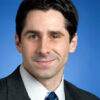Duke Daytime MBA Student Blog

Business Insights from European CEO
For years, Fuqua’s faculty, students, and alumni have exerted tireless effort to brand the school as the preeminent international business school in the United States. In pursuit of this, the Fuqua family has benevolently aided those most in need of our knowledge and experience; however, on February 23, the roles were reversed when Atlantic Gruppa founder and executive Emil Tedeschi discussed his firm’s growth and mission with eager Fuqua students.
Atlantic Gruppa is one of the largest food production companies in the world, and is the leading European producer of sports food.
![]() View video of Emil Tedeschi’s talk.
View video of Emil Tedeschi’s talk.
In a vigorous conversation marked by periodic humor and humility, Mr. Tedeschi detailed the convergence of circumstances in the early 1990s that permitted his firm’s initial growth. He comically likened himself to chewing gum pioneer William Wrigley, who ‘accidentally’ happened on his destiny while trying to make his fortune elsewhere. Incidentally, it was Mr. Wrigley’s company that gave Atlantic Gruppa its first major contracts, selling chewing gum in Croatia. He described a highly fragmented, pre-union Europe as protecting his company from the competition of major food and consumer product retailers, and, harnessing the optimism characteristic of an entrepreneur, he felt that the strife in the Balkan region provide a litany of cautionary tales that gave the business some footing. This, he reasoned, was the ‘cheap’ way of learning.
Mr. Tedeschi then turned the discourse didactic, with lessons he deemed applicable for Fuqua students. He suggested that his experiences had shown him that there were typically more profits to be made by side stepping the popular mainstream, emphasizing the Fuqua convention of “thinking outside the box.” He also cautioned against relying very heavily on any individual outside entity. The weariness engrained in him during his business’ nascence in a war-torn country beleaguered by economic issues left him with the belief that, in business, nothing is sacred; anything can be sold, or bought, or transformed, but that this same credo should never be applied to personal relationships. His business model reflects this worldview, and he urged the crowd to think similarly.
However, for many, the highlight of the presentation was an opening video, illustrating the rise not of Emil Tedeschi, CEO, but of the man away from his work. Armed with humorously unsophisticated animation, it depicted a man who tolerated his business, but spent time away from work managing a popular Croatian music group and tending to his professional basketball franchise. Indeed, it was this very affinity for basketball that prompted the inclusion of sports drinks and energy bars in his company’s offering, and, this well roundedness, for good reason, resonated with an empathetic crowd.



